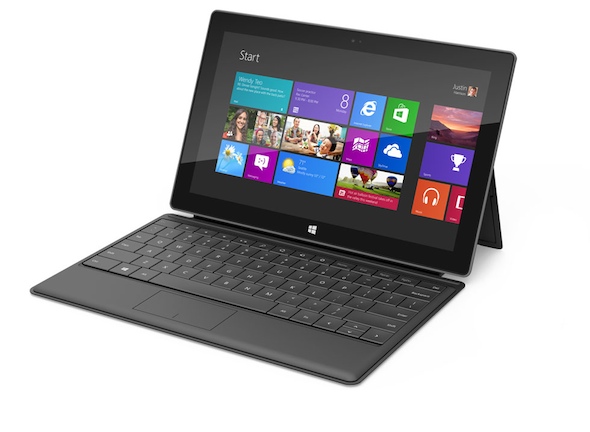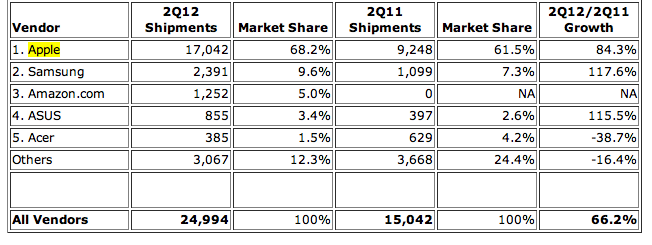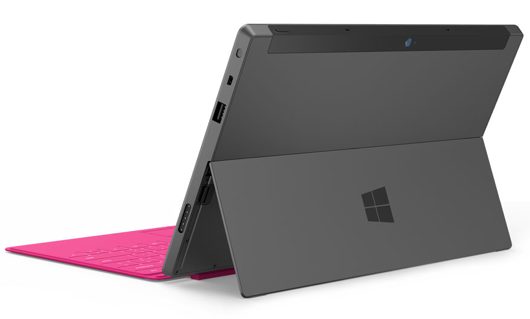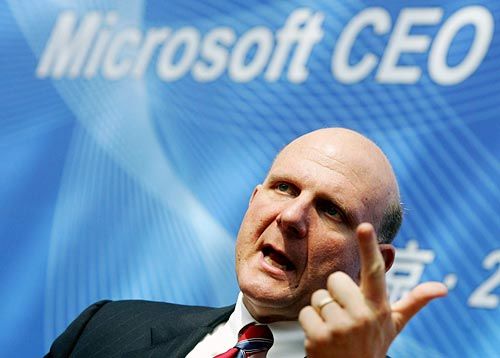Acer is the most vocal opponent of Microsoft’s Surface tablet. Its founder Stan Shih went on the record two days following the Surface’s announcement, opining that the gizmo was just a ploy to drive Windows 8 adoption.
Today, Acer CEO JT Wang drove the point home by begging Microsoft to “think twice” about the Surface because tablet making is is not something the Redmond company is good at. Meanwhile, Microsoft is speculated to be already at work on a Surface tablet sequel…
TechRadar spotted a dozen of Microsoft job adverts for “the next generation” of Surface devices, with some posts looking for “mechanical engineers to component specialists and materials experts to driver developers and audio engineers (plus manufacturing and packaging designers), in addition to the substantial team of industrial designers and engineers already on the Surface team”.
As for Acer’s take on the Surface, CEO JT Wang was interviewed by Robert Budden and Sarah Mishkin for The Financial Times.
As the authors note, Wang is the first head of a big PC maker to criticize Microsoft’s move publicly, here’s what came out of him:
We have said [to Microsoft] think it over. Think twice. It will create a huge negative impact for the ecosystem and other brands may take a negative reaction. It is not something you are good at so please think twice.
I imagine Steve Ballmer must be throwing a chair in his Redmond office (Ballmer’s chair-throwing attitude about competition has been well-documented).
It’s understandable that Microsoft feels compelled to take matters into its own hands: July IDC data painted Apple as the leading PC vendor (if you count tablets as PCs), with the iPad growing its market share to 68 percent in Q2 2012 at the expense of not just netbooks (who remembers these?), but also notebook and desktop machines.
So Wang, what should Microsoft do then?
Leave tablet making to the big boys?
Exactly that, as Wang suspects that Microsoft entering the tablet game will antagonize its OEM partners, who don’t get the price benefit of creating both hardware and software under the same roof and are required to pay license fees to use Windows 8 on tablets, which means they’re unable to compete with their software provider on a level ground.
Oliver Ahrens, Acer’s senior vice president and president for Europe, Middle East and Africa, told Reuters that Microsoft is heading up for a failure:
I don’t think it will be successful because you cannot be a hardware player with two products. Microsoft is working with two dozen PC vendors worldwide, including the local guys, whereas Apple is alone, it can more or less do what it wants.
Interesting enough, it was reported today that Microsoft’s own Office 2013 RT for Windows RT tablets will ship as public preview, lacking macros and other features.
Another Acer exec, Campbell Kan, is concerned about unfair competition from Microsoft:
If Microsoft is going to do hardware business, what should we do? Should we still rely on Microsoft, or should we find other alternatives?
The only other viable choice is of course Google’s Android software which with the release of Jelly Bean that powers Google’s Nexus 7 tablet has proven a very capable alternative to both Windows 8 and Apple’s iOS.
Needles to say, Steve Ballmer is defensive of his company’s tablet gamble. The outspoken CEO recently reassured that “the importance of the thousands of partners that we have that design and produce Windows computers will not diminish” because of Surface.
Unfortunately, Microsoft’s 10-K filing with the U.S. Securities and Exchange Commission debunks Ballmer’s words as it clearly states that Microsoft could find it “more difficult to attract applications developers to our platforms” should the Surface prove popular.
And Wang doesn’t think that Microsoft’s PC-Plus strategy with Windows 8, which marries mouse and keyboard to touch input, is the way to go.
The keyboard is still a necessity but touch is becoming a fashion and necessary feature. Windows combines the touch and the keyboard. If you don’t have touch you are antique.
Apple’s boss Tim Cook noted as much, recently likening Microsoft’s approach to a convergence between a toaster and a refrigeratorthat wasn’t going to be pleasing to the user.
Microsoft recently acquired the maker of big screen multitouch surfaces Perceptive Pixel in order to bolster up its multitouch technology portfolio.
Microsoft will begin selling the Surface on Friday, October 26 at its twenty retail stores built across the country (and usually right across Apple’s high-profile brick-and-mortar outlets). The Windows maker is slated to open ten additional stores this year.
[tube]b9CHFa7YqVQ[/tube]
Microsoft has yet to announce price points for the Surface, though the company’s executives said during the unveiling that it’ll be priced comparably to notebooks, which many deciphered as at least $1,000 – the same price point analysts had floated in the months leading up to the iPad announcement.
A lengthy Variety piece titled “Microsoft’s Lost Decade” offers a no-bullshit critique of Microsoft’s failed products and missed opportunities, an effort to explain why Microsoft lost its mojo after 2000.
In our little non-scientific poll, more than half the respondents thought Apple should either pay notice or wait and see how receptive customers will be of the Surface.
Would you consider a Surface tablet for yourself?



